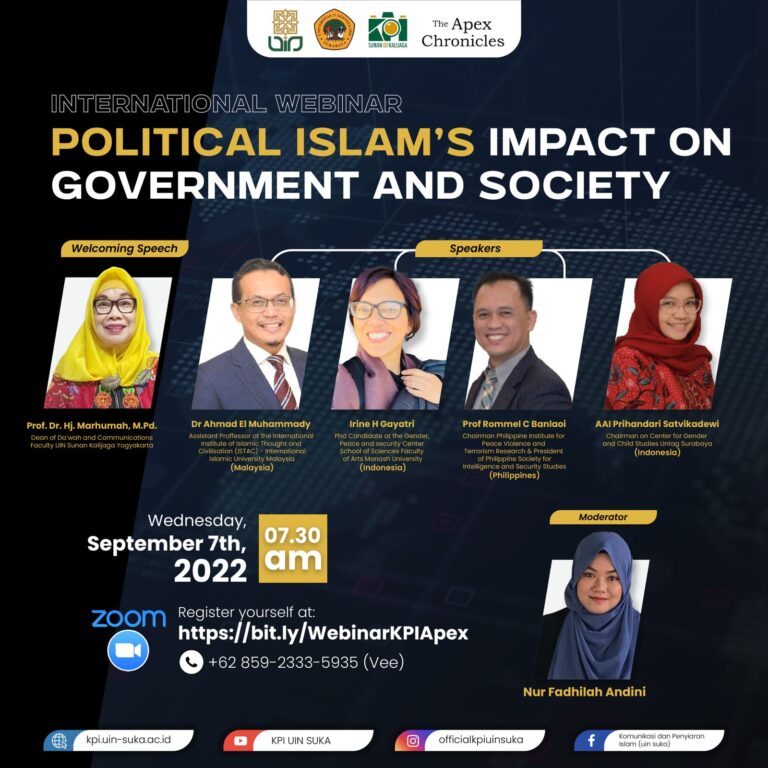Indonesia – Malaysia in Countering Radicalism and Terrorism through Digital Media
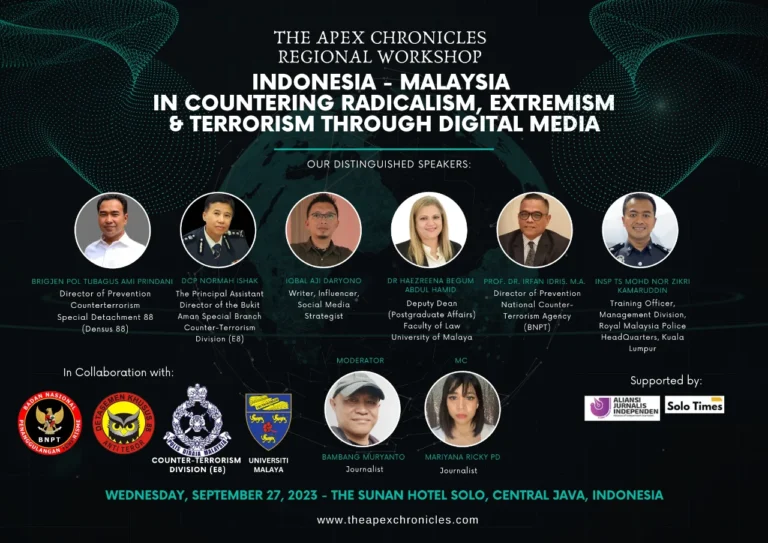
As much as 85% of millenials are susceptible to exposure to radical ideologies. This data is based on a 2023 survey conducted by the National Counter Terrorism Agency (BNPT), involving 13.700 respondents from 32 provinces in Indonesia.
The same survey also states that, “Women have a higher potential for exposure to radical ideologies compared to men,” said AKBP Mayndra Eka Wardhana, the Head of the Counter Narrative Sub-Directorat of the Anti Teror Special Detachment (Densus 88).
The Setara Institute, a Non-Governmental Organization focused on research, conducted a study involving 947 students from 19 public high schools and 33 private high schools in Indonesia. The results show that approximately 83.3% of respondents believe that Pancasila is not a permanent ideology and can be replaced.
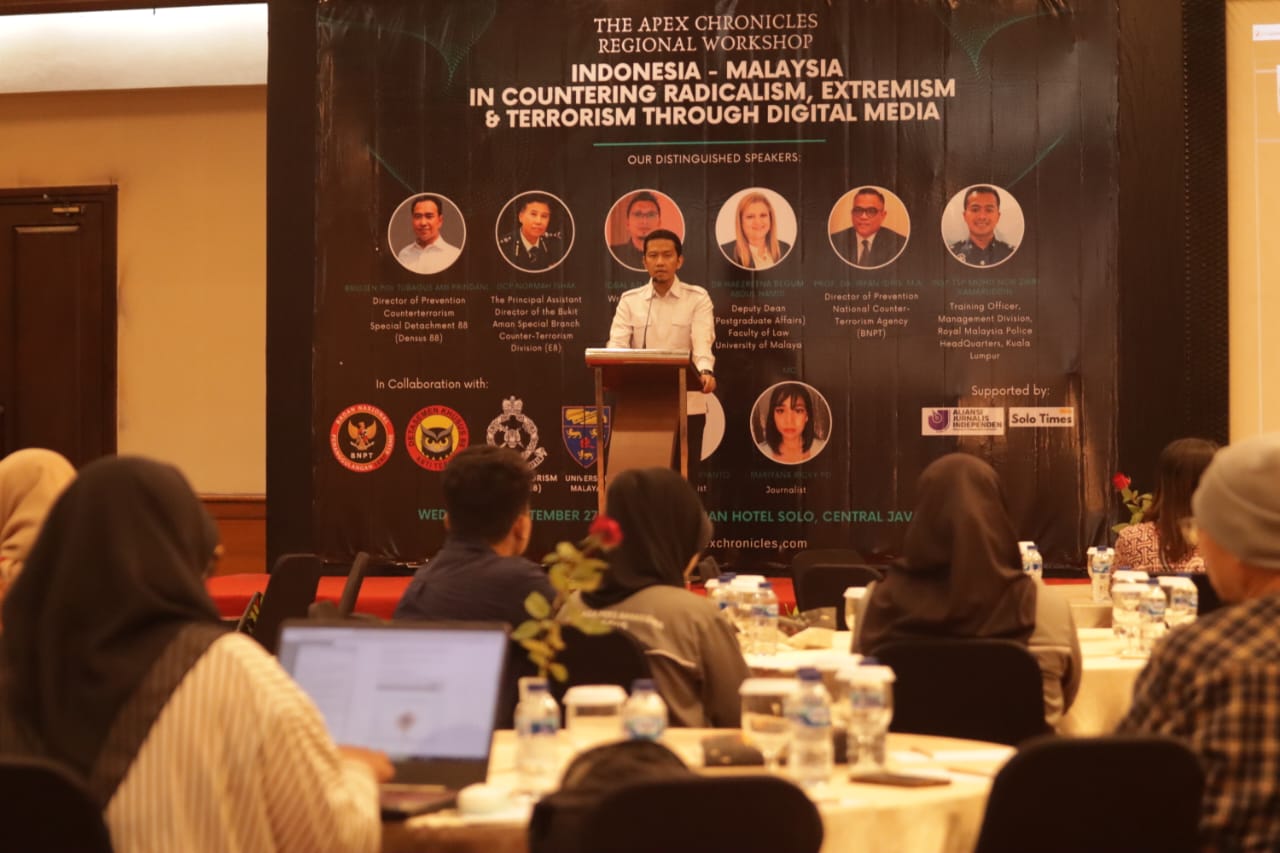
Radical terrorist groups in the digital era show that they occupy a noisy minority position in the digital world. While their numbers may be small, their impact is significant compared to moderate groups with a larger presence on social media.
In 2020, the Ministry of Communication and Information (Kominfo) identified as many as 20,543 pieces of content with indications of radicalism. Social media appears to be a comfortable space for radicalization because it is impersonal and identity-free, making it easy to use as a space for spreading radical ideologies.
Data from the Indonesian Internet Service Providers Association (APJII) revealed that, in the period from 2022 to 2023, internet users in Indonesia reached 215.63 million people, equivalent to 78.19% of the total population.
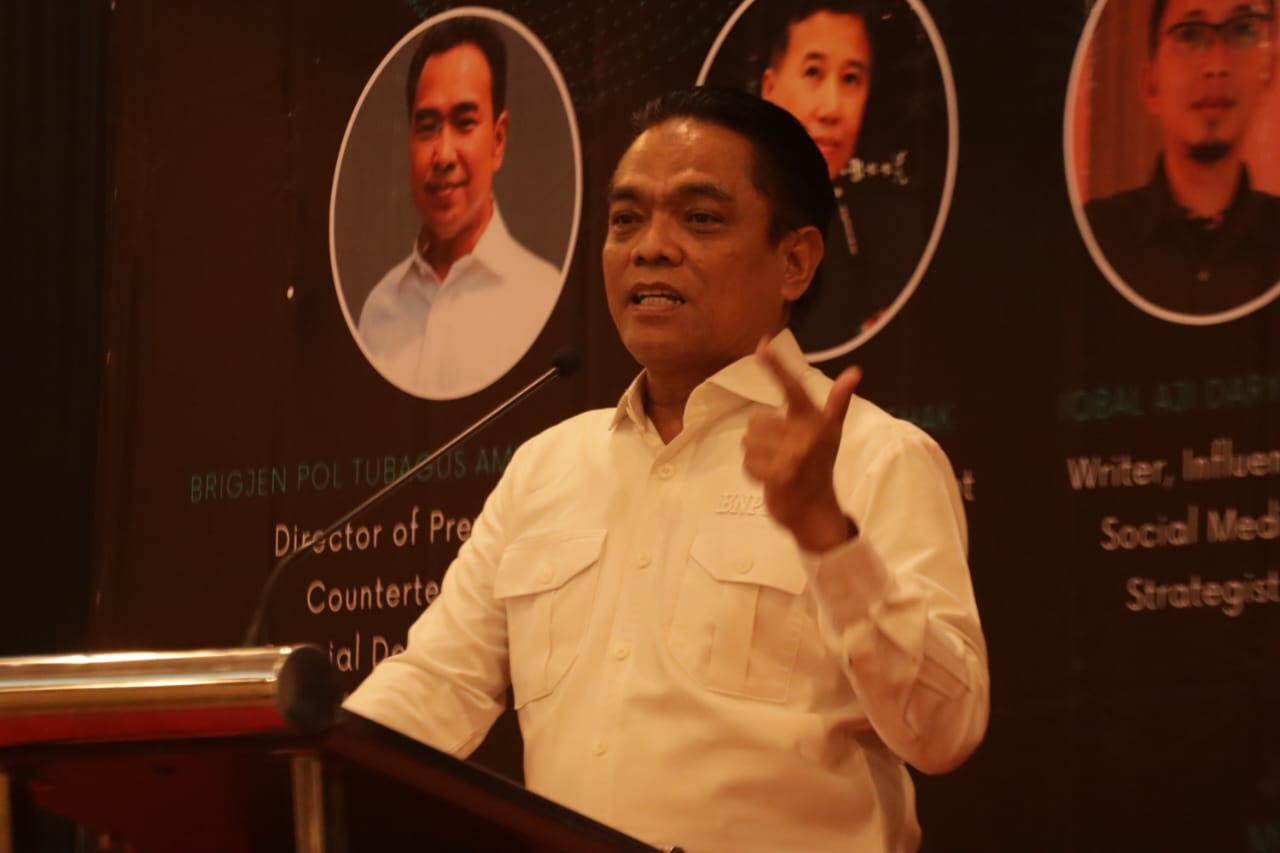
On one hand, the high number of internet users in Indonesia reflects the government’s success in building telecommunications infrastructure. At the same time, it demands that the government consistently takes preventive measures and ensures that internet usage does not lead to radicalism and terrorism.
Intolerance, Radicalism, and Terrorism on the Internet
The phenomenon of spreading intolerant, radical, and terrorist ideologies through social media is a new trend that must be monitored by all sectors of society. It should not be underestimated because it can ensnare anyone, regardless of their social or intellectual background. Since the emergence of ISIS in Indonesia in 2014, and in several other Southeast Asian countries such as Malaysia and the Philippines, the trend of spreading radical and terrorist ideas through the internet has been on the rise.
“Vigilance needs to be continuously increased because many local issues can be turned into ethnic and religious issues, as seen in Poso and Ambon, where terrorism thrived. This is like a time bomb that can explode at any moment,” said AKBP Mayndra Eka Wardhana, Head of the Counter-Narrative Sub-Directorate of the Anti-Terror Special Detachment (Densus 88).
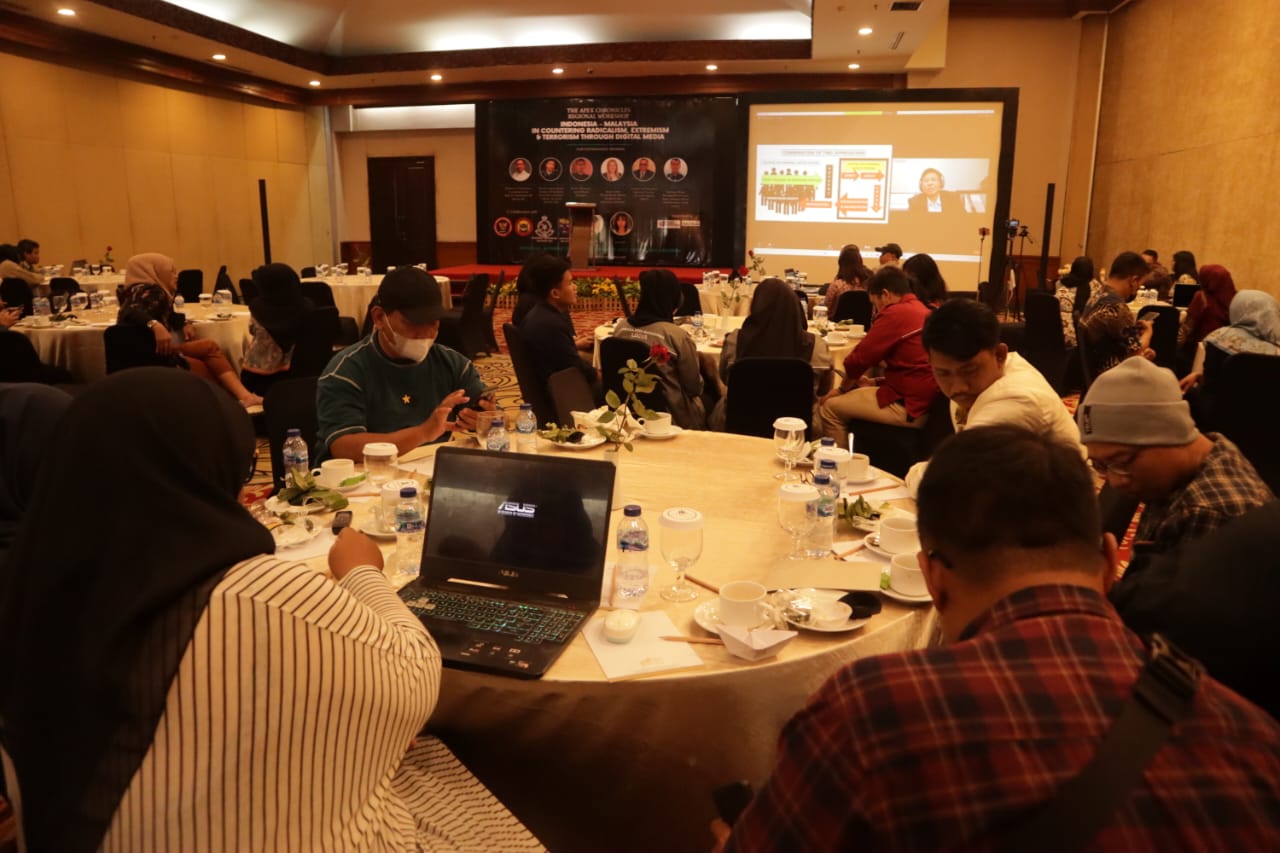
Social media allows users to form virtual social interactions that influence behavior. The formation of extreme behavior, even terrorism, does not happen overnight. Such attitudes and behaviors develop through three stages: The first is Intolerance. in this stage, individuals are exposed to radical thoughts. The most prominent characteristics include a refusal to accept or acknowledge the existence of different religious sects, ethnicities, and local traditions, anti-diversity attitudes, rigidity, textualism, inflexibility, and a failure to consider context in religious matters.
The second stage is radicalism, where individuals are exposed to radical behavior. Behaviors exhibited include rejecting basic state principles such as Pancasila, the 1945 Constitution, the Unitary State of Indonesia (NKRI), The final stage is terrorism. This is when individuals have been exposed to actions. Prominent behaviors include attempting to establish an Islamic state, or Daulah Islamiyah, using violence and terror to achieve their goals.
Kominfo, in collaboration with BNPT, has undertaken various measures to prevent the misuse of social media by radical and terrorist groups. This includes closing accounts that have the potential for radical propaganda and indoctrination. In July-August 2023, a total of 174 accounts with radical content leading to radical ideologies were taken down. Most of these radical accounts were found on the platform formerly known as Twitter, followed by Facebook, Instagram, and YouTube.
Director of Prevention at BNPT, Prof. Irfan Idris, stated, “To combat extreme radical narratives on social media, alternative narratives with a gentle approach are required, not narratives of violence or judgment.”
According to Irfan, BNPT also carries out various other preventive efforts, such as educating teenagers, women, and other vulnerable groups to increase awareness of literacy. Moderation campaigns are also conducted on social media, serving as both anti-radicalism and anti-terrorism campaigns.
“We have also formed a cyber team responsible for identifying and countering radical content, collaborating with stakeholders, civil society organizations, and various other parties,” added Irfan.
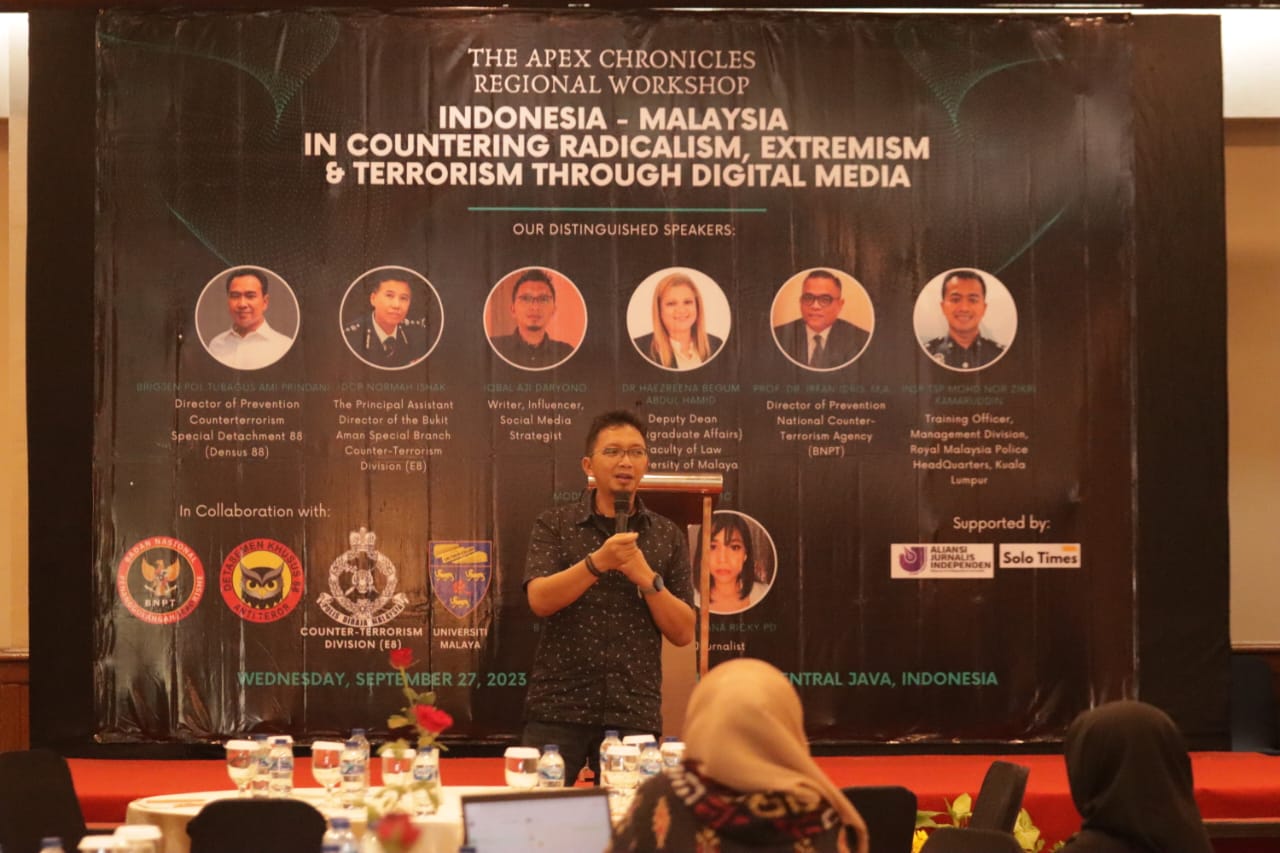
Social media activist Iqbal Aji Daryono emphasizes that, “Radicalism cannot be eliminated by bullying; we must appear as allies.”
Iqbal further mentions that radicalism is synonymous with hatred and is depicted as fire. Therefore, fighting radicalism cannot be done with fire. “The only thing we can do is establish ‘contact’ with them, not create filter bubbles or distance ourselves,” he explained.
Malaysia’s Journey in Deradicalization and Counterterrorism Efforts
Malaysia has been continuously developing its efforts to prevent radicalization and terrorism, especially in the digital space. In 2021, based on data from the Global Terrorism Index, Malaysia ranked 68th, but in 2022, Malaysia improved its ranking to 75th as a country with decreasing terrorism cases.
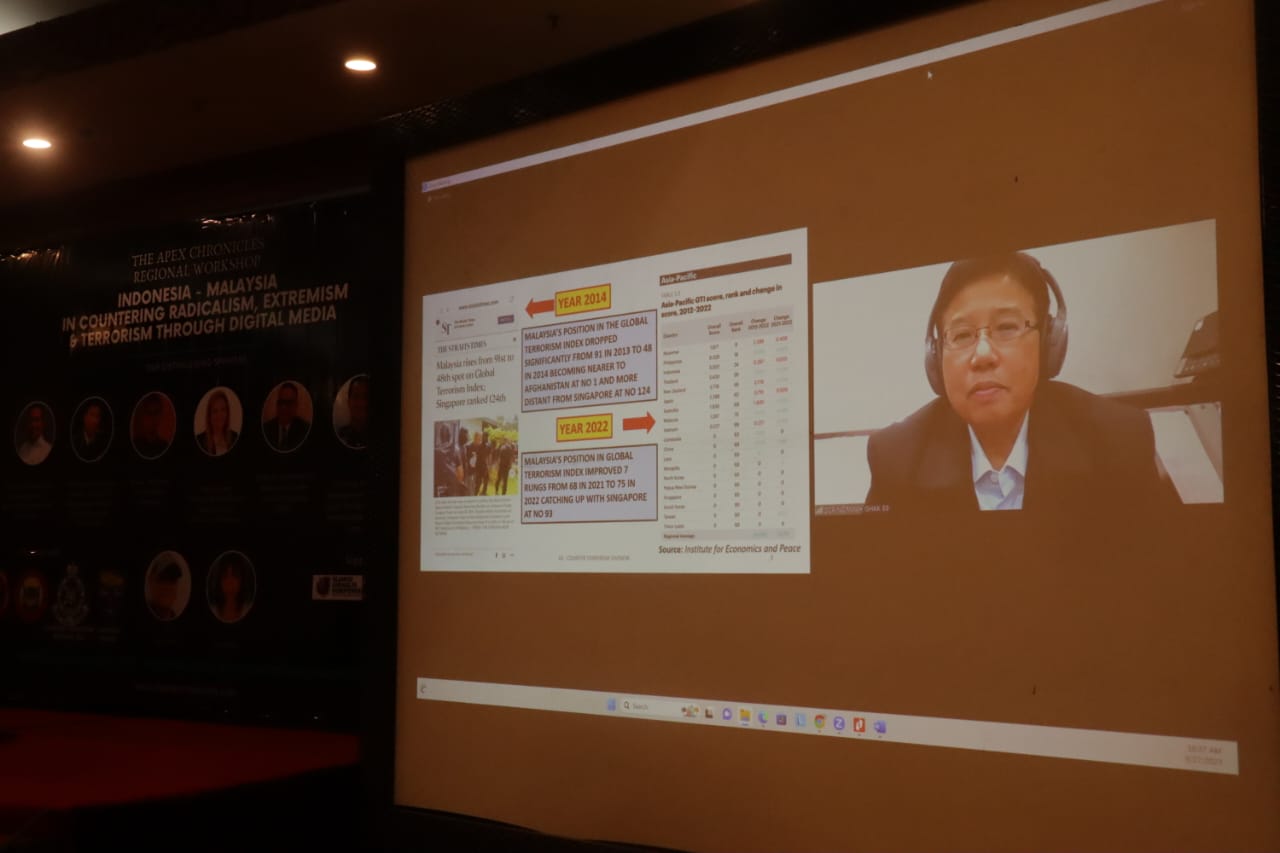
DCP Normah Ishak, the Principal Assistant Director Royal Malaysia Police Special Branch on Counter Terrorism, likened terrorist organizations to fishing companies. Sometimes, the recruitment process can involve getting a dozen people of all kinds. Then they select the best individuals for their purposes, while the rest are processed into other roles.
The approach used by the Malaysian government to counter terrorism has three stages. It begins with monitoring, where software and tools are used to detect online conversations and keywords. Second, they evaluate online content, identifying radical ideologies, propaganda, and potential threats. Lastly, they examine user interactions, posting frequency, and connections to identify anomalies indicative of radical behavior.
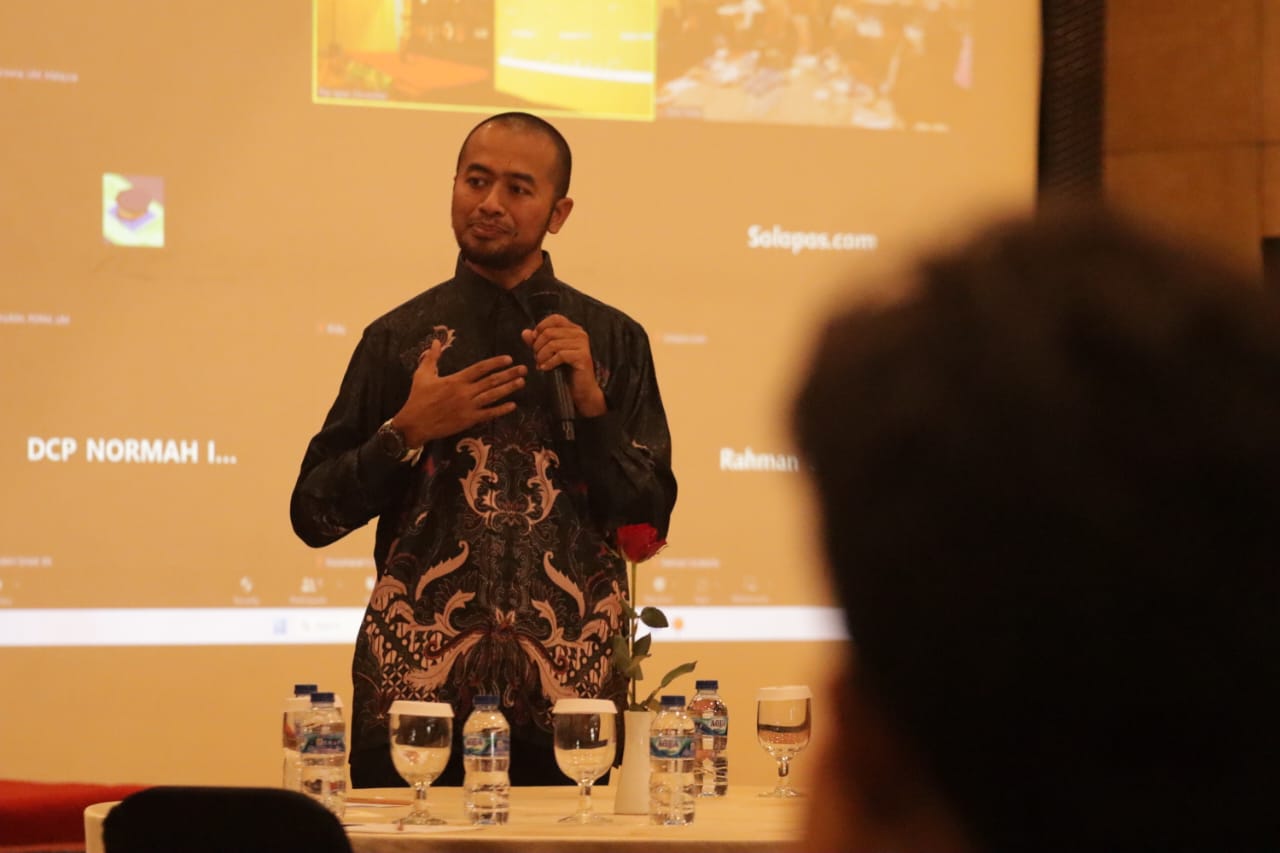
TikTok, as a relatively new social media platform, has a significant influence on the distribution of intolerant, radical, and extremist narratives, especially in Malaysia. Narratives such as ‘Topple the Government’ and ‘It’s Haram for Malay Muslims to Vote for PH (DAP)’ have emerged on TikTok. Therefore, “Malaysia has partnered with TikTok to prevent violent extremism, and TikTok has sent an official email regarding this commitment,” revealed Insp Ts Mohd Norzikri Kamaruddin of the Royal Malaysia Police Headquarters.
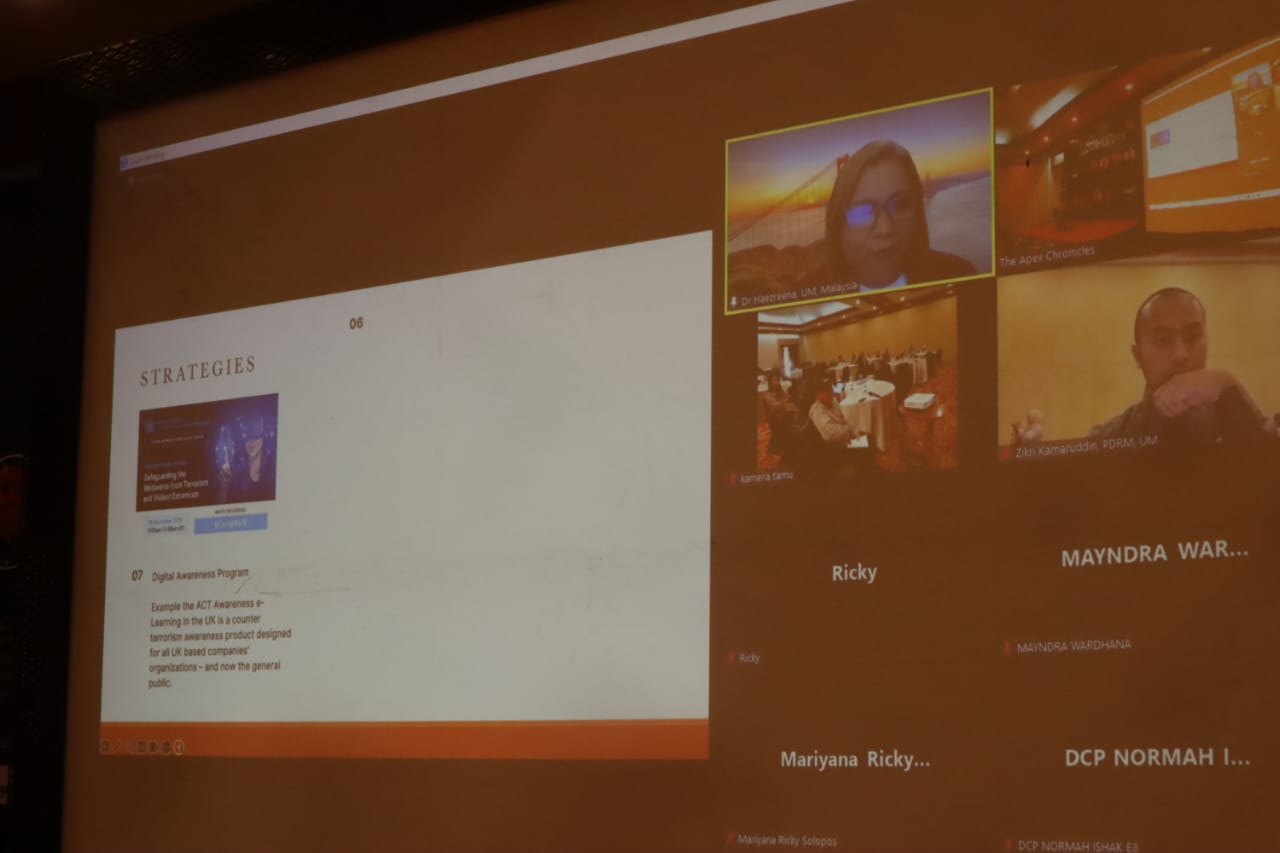
In a presentation by Dr. Haezreena Begum Binti Abdul Hamid from the Faculty of Law at the University of Malaya, Malaysia also directly addresses radicalization through community policing models. This effort aims to proactively address urgent conditions that pose public safety issues, such as crime, disturbances, social issues, and fear of crime.
“In Malaysia, the Salleh System was established in 1967 to provide police personnel with training to be more responsible and easily accepted by the community. Subsequently, the Koban System was created, where police communities are responsible for monitoring and prevention activities such as patrols and being the first responders in emergencies,” she explained.
To achieve success in the prevention of radicalization and terrorism, it requires the involvement of various stakeholders, including the government, society, academics, media, and businesses. If all parties are willing to participate, it is not impossible for Malaysia to become safe and peaceful.
